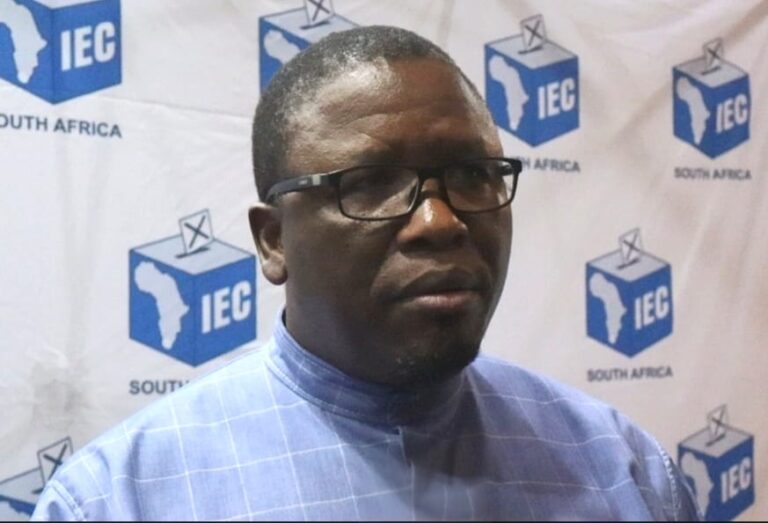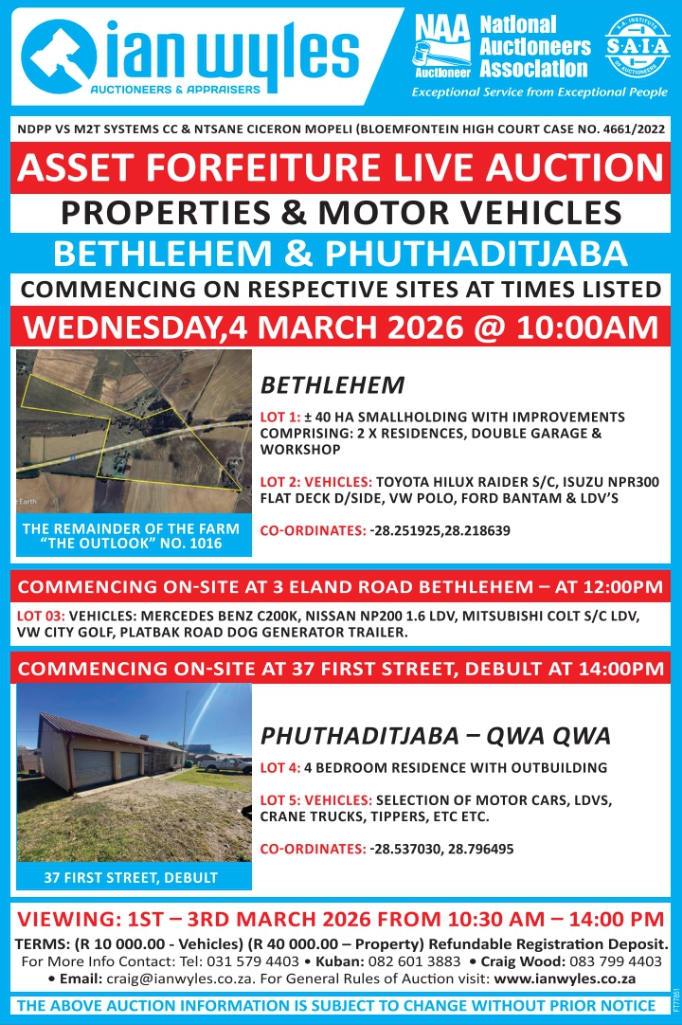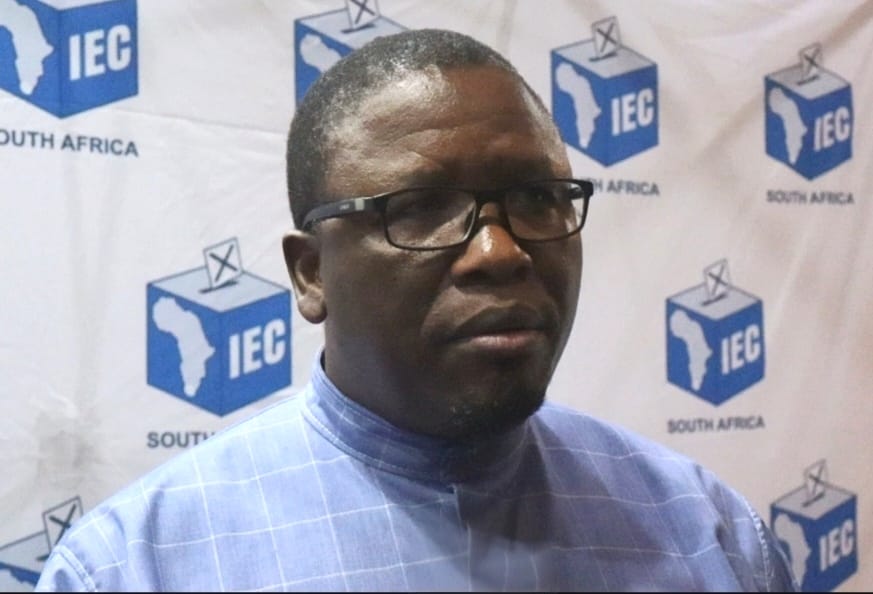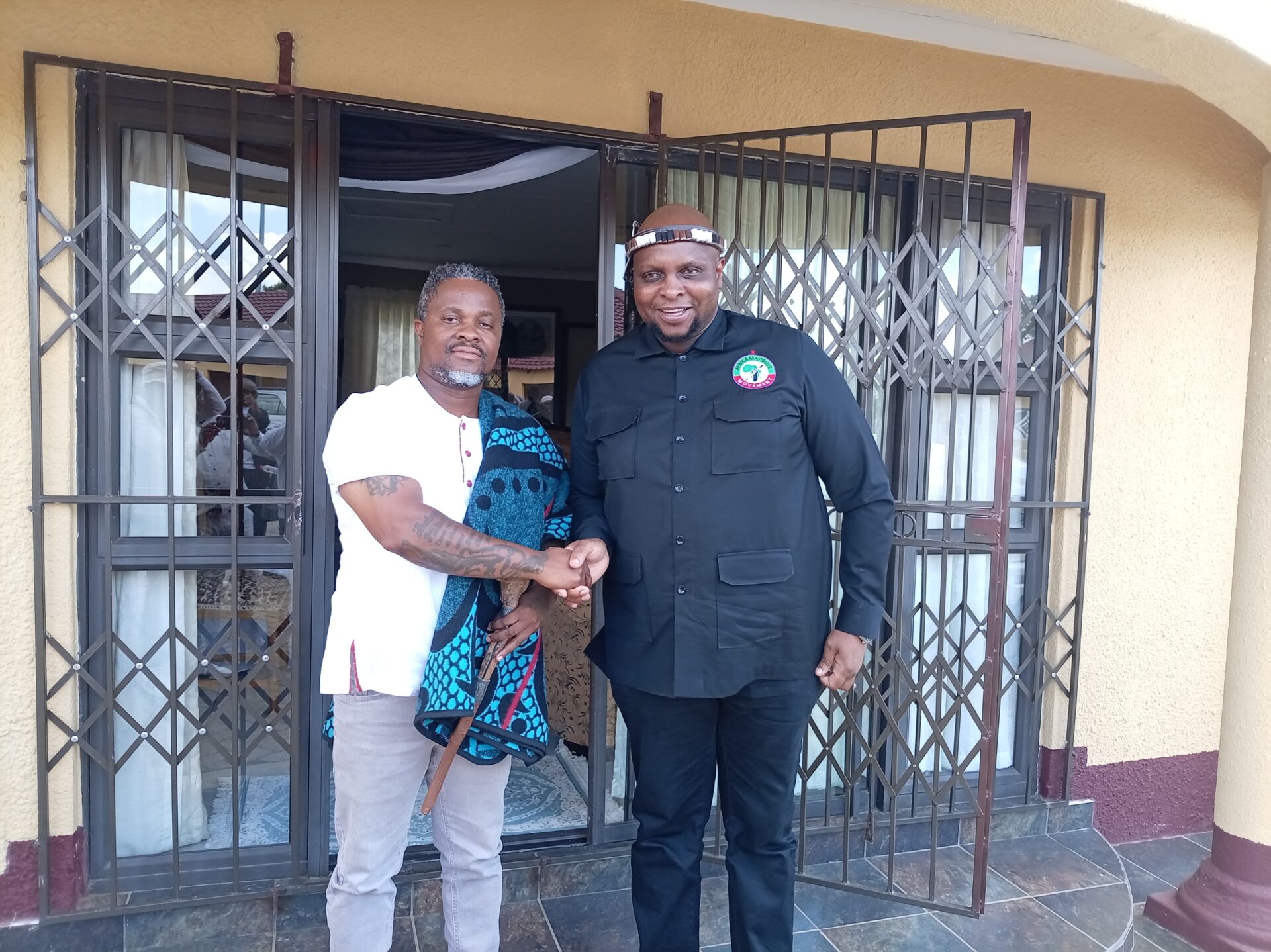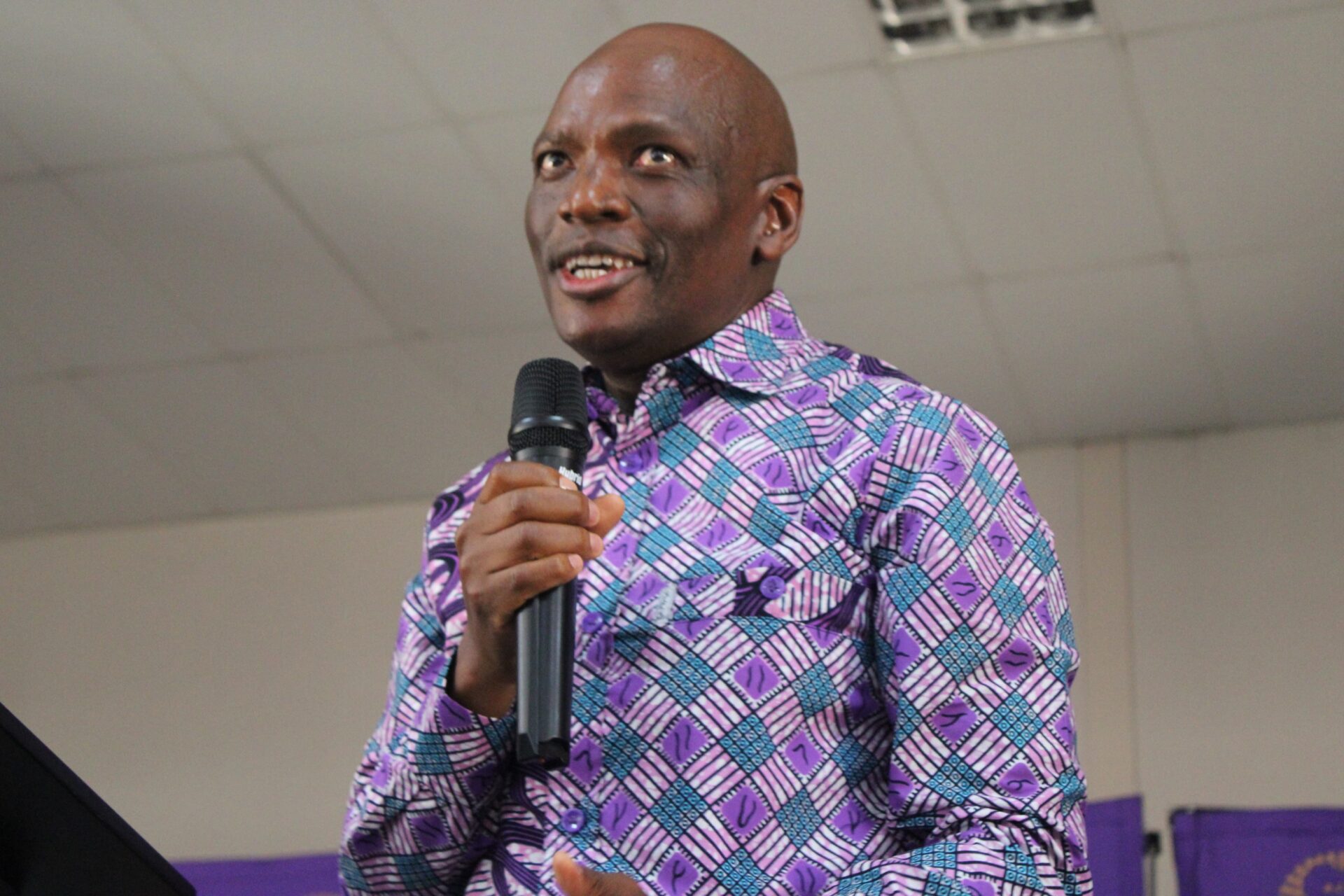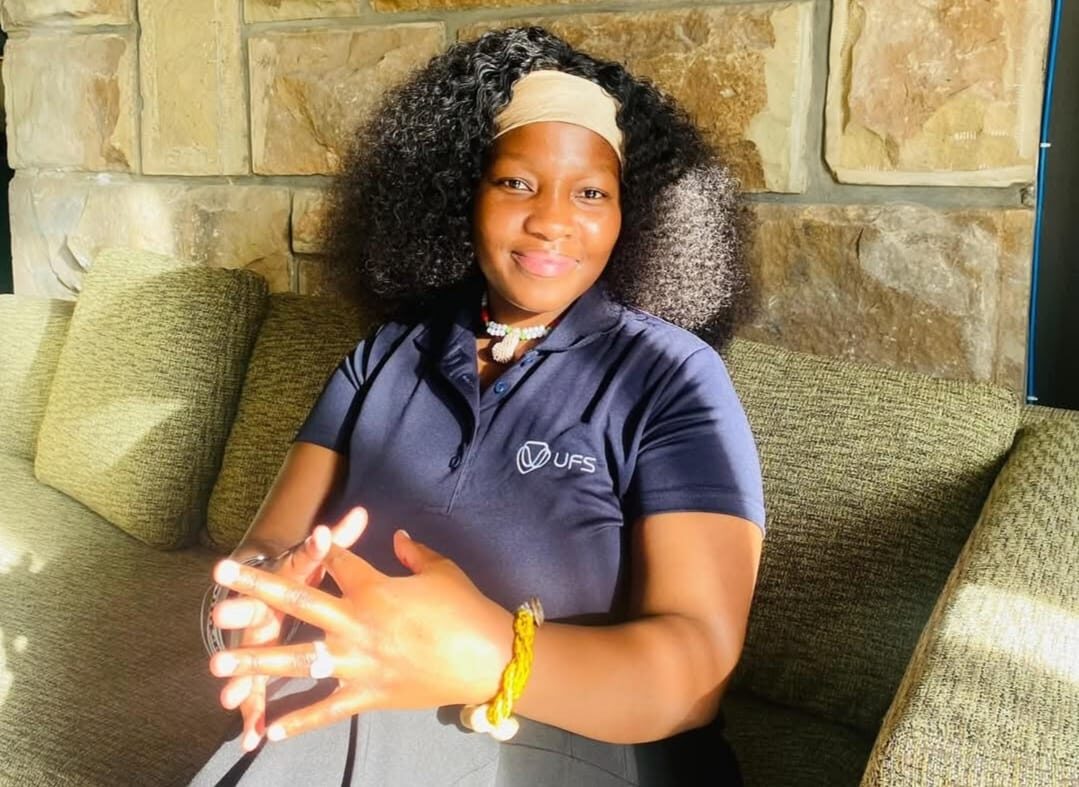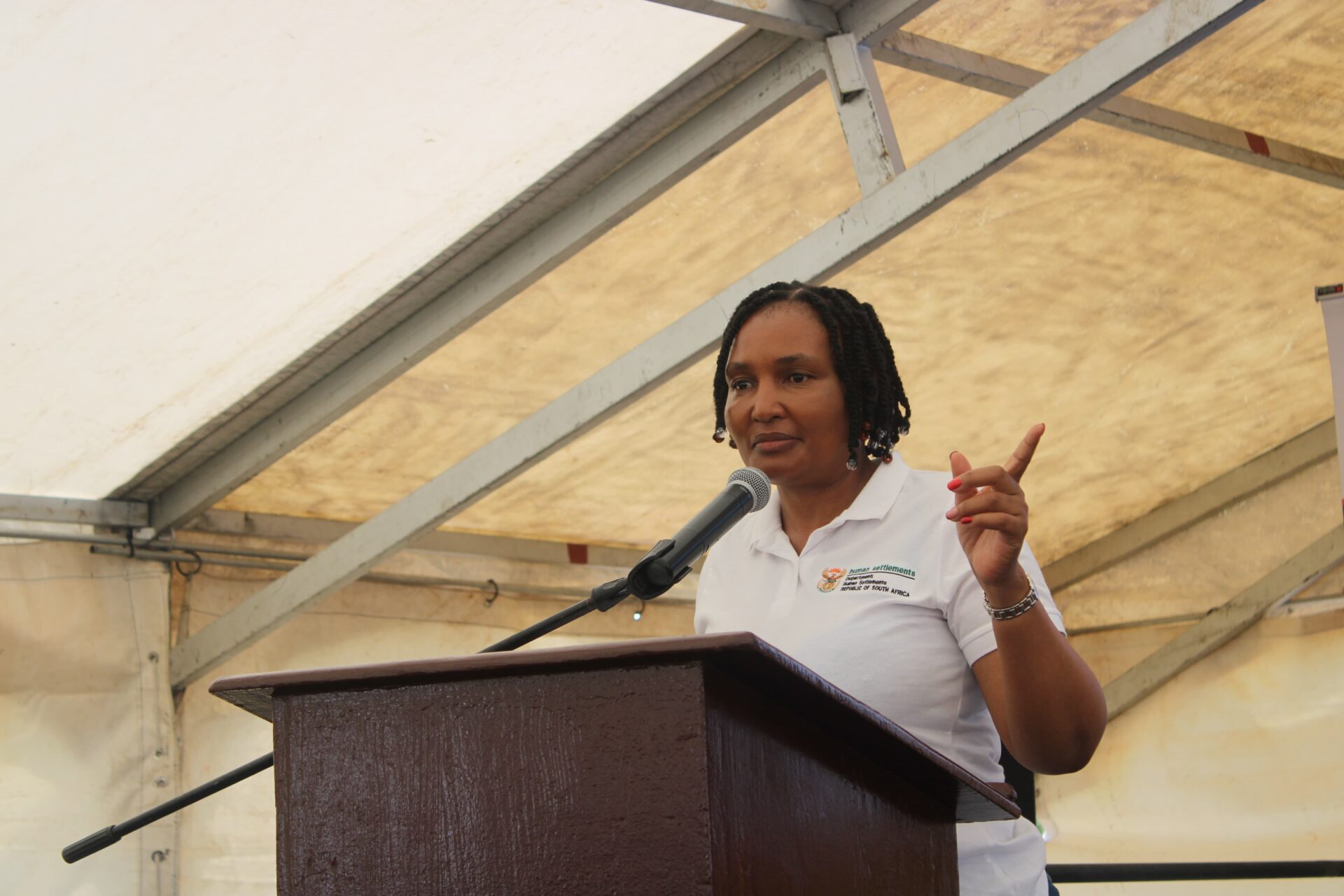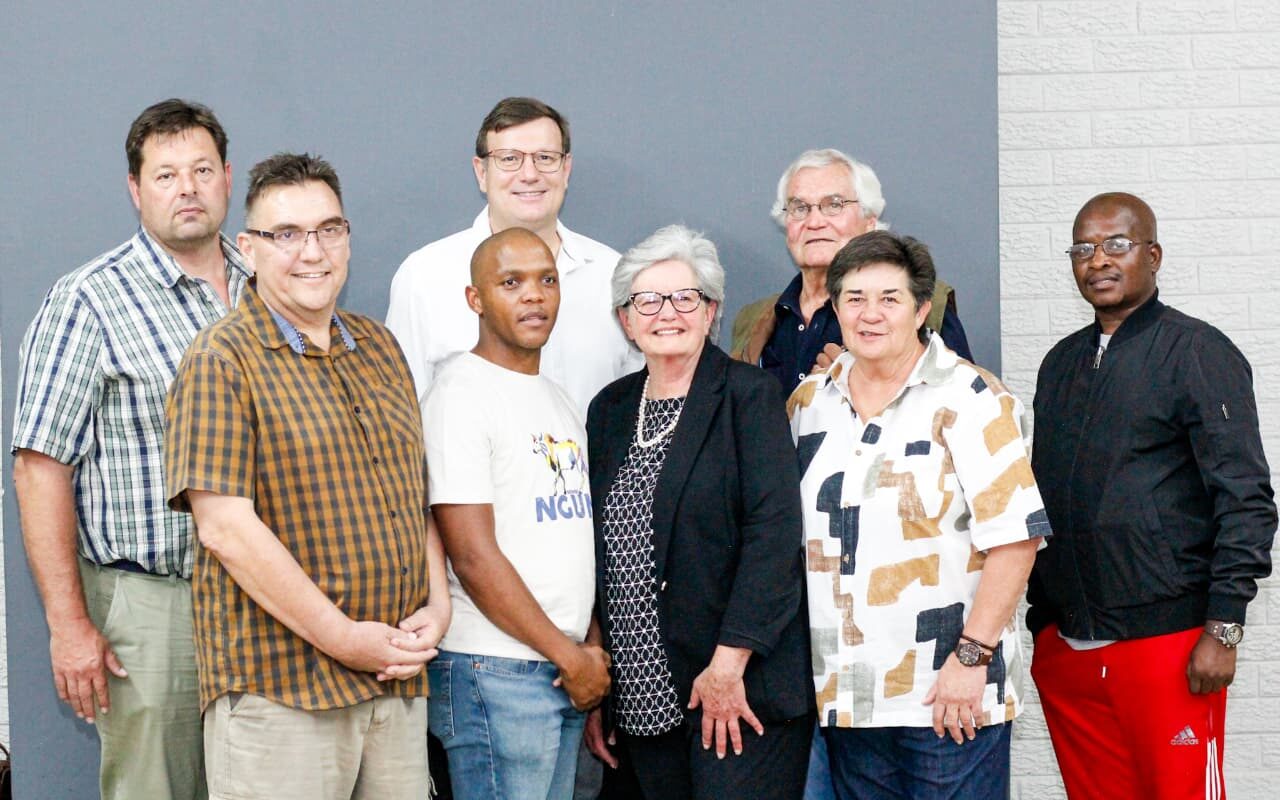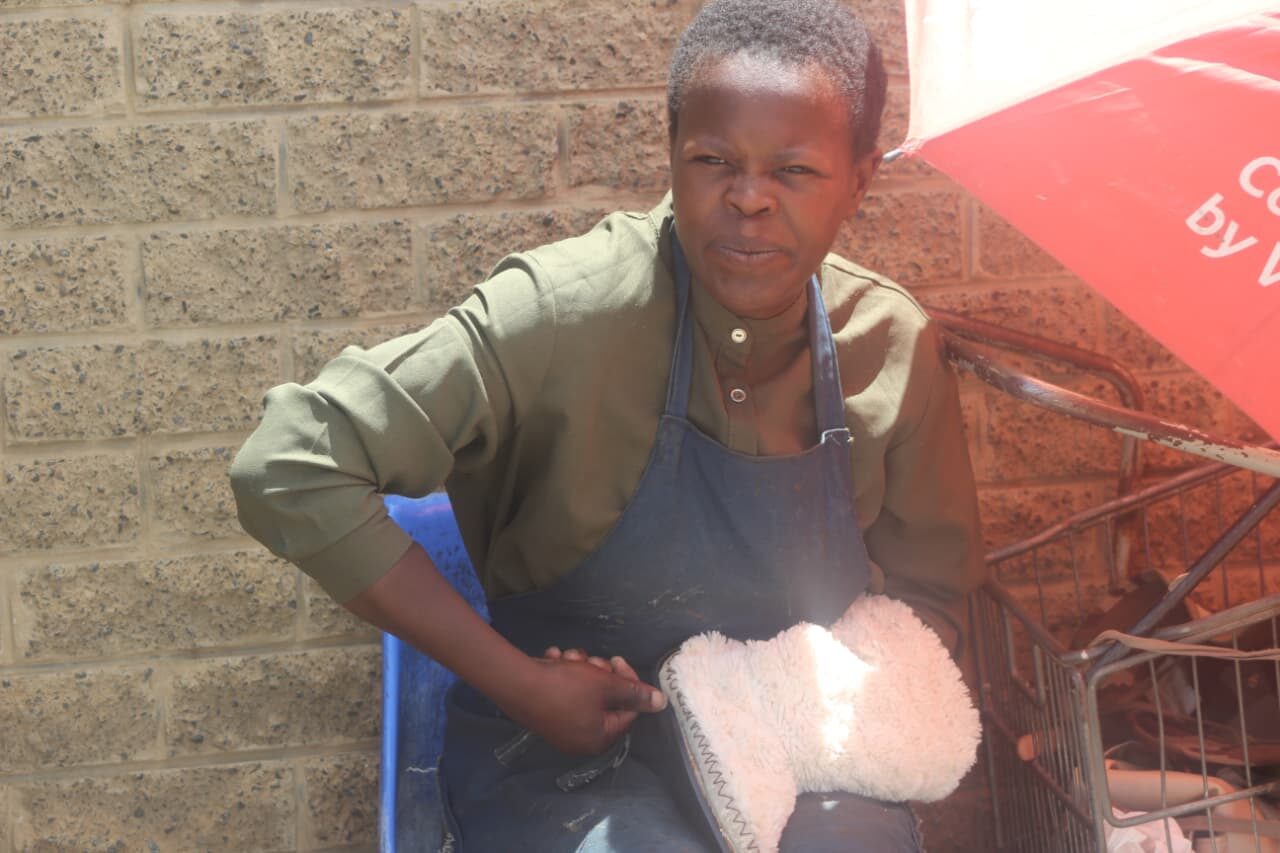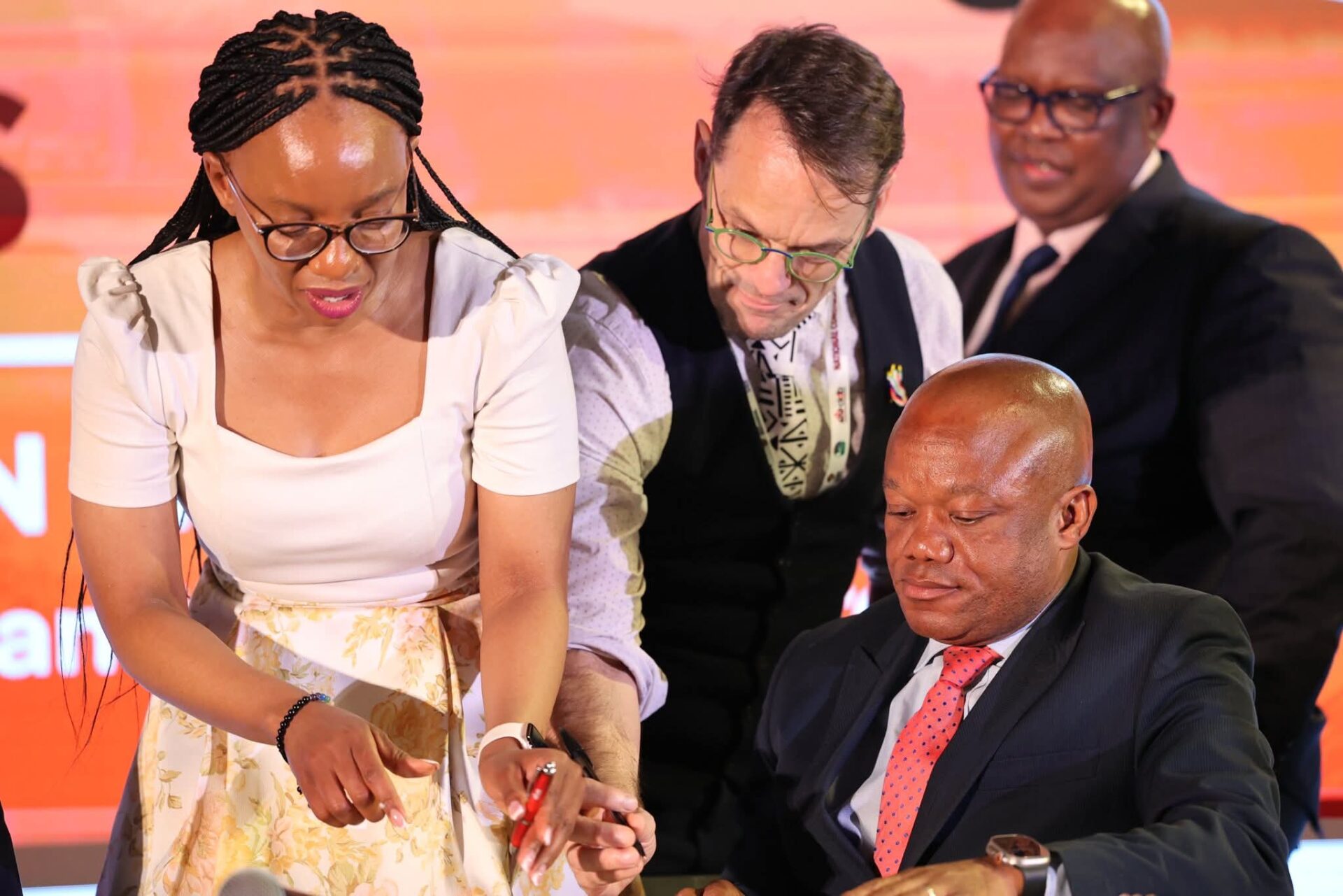By Emily Setona QWAQWA – Free State premier Maqueen Letsoha-Mathae has fired a stern warning against those who thought they could interfere with the authorised lists of beneficiaries by adding their own people to the names that were chosen through the raffle process.
Letsoha-Mathae mentioned that she has returned to the community of Qwaqwa to deal with numerous complaints that she received from community members raising their concerns about the interference with the authorised beneficiary lists, by some corrupt individuals who are busy adding their own people to authorized lists that had been approved by the province.
She said this during a community engagement meeting with the beneficiaries of this provincial road fixing project that was introduced while Letsoha-Mathae was Department of Community Safety, Roads and Transport MEC at the Phuthaditjhaba Multipurpose Hall accompanied by Jabu Mbalula who has taken the reigns from Letsoha-Mathae.
“I said I will return, didn’t I? I was not aware that I would be wearing a new hat, today I officially introduce MEC Jabu Mbalula to all of you, he is now your go-to person from now on. ’We are here because of a lot of complaints that gave us sleepless nights. When I wake up, I receive messages where someone tells me that ‘so and so was called for a job, and I wasn’t contacted’ or ‘someone is part of the project but wasn’t selected from the raffle process’. The reason we conducted the raffle process was to avoid all of this. I urge everyone to respect everyone else’s job, because this project is from the province and councillors have no right to change the names that we have selected through the raffle process.”
“We said we won’t bring a project that will cause discord among the residents of Qwaqwa, we said this project must unite the people of Qwaqwa and make them happy. I am disappointed to hear that there are some lists that have been tampered with and changed without our knowledge. The people who have been interfering with our lists must stop what they are doing. I want to emphasize that the job of the CLO is not hiring, we have already hired.
The CLO must make sure that when the time comes for beneficiaries to be called to work according to the lists, that is communicated to the right people. You do not have a right to add or change names that the councillors give to you,” Letsoha – Mathae said while addressing the crowd.
Ntswaki Shasha is one of the Community Liaison Officers (CLO) who was appointed through a rigorous interview process and she said that she is looking forward to working with the community.
“I am from Matebeleng in ward 8 and I feel very proud because I realized that amongst all the CLOs that went to the interviews, I am the only lady who made it to this point where I am appointed as a CLO. I am looking forward to facing all the challenges that I will encounter while working with the community and I receive the message and advise from the premier to work well with the community,” Shasha said.
For his part, Mbalula said there is something that they have noted, a disturbing practice that involves individuals changing the names of the people who were selected through the raffle system. “This project has already started, and people are already working in some sites. There is something that we have noticed as this project progresses, that the lists that were compiled transparently in the presence of the community are busy being manipulated.
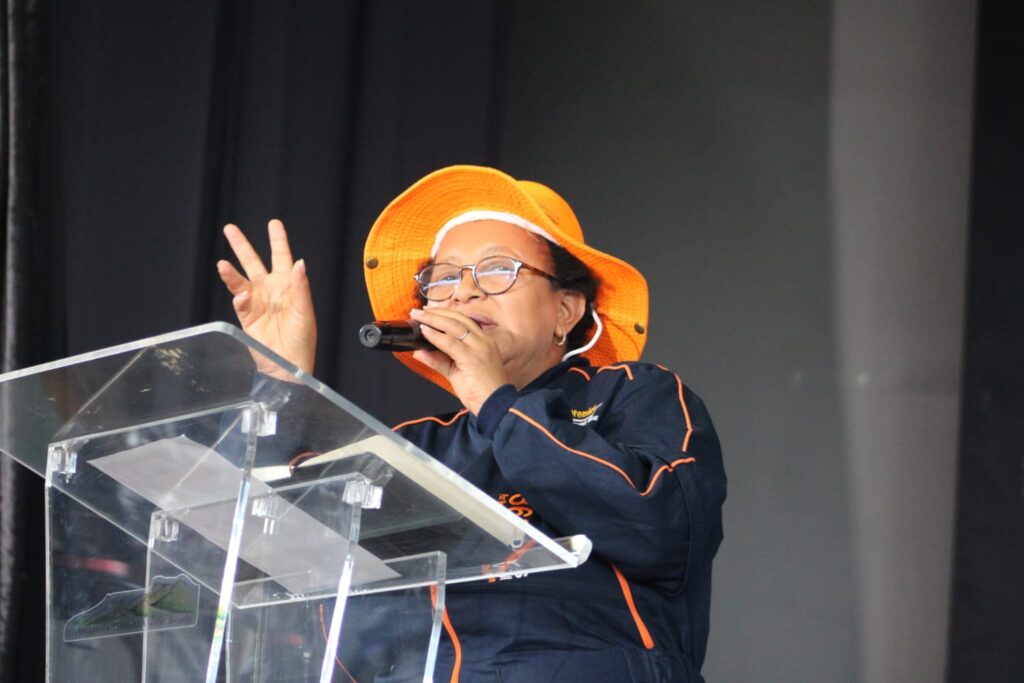
Premier of Free State MaQueen Letsoha-Mathae addressing community members at Phuthaditjhaba multi-purpose hall.
“It has been clear and apparent that there are certain areas where there has been a bit of conflict and discord. The only change that is allowed is to make sure that women are given enough opportunities in relation to the men who have been hired. We also acknowledge that the CLO’s are mostly men, so we need to do more to change this,” Mbalula said.
The premier added that while transparency remains key, it is important to note that traditional leaders play a crucial role in these processes as mandated by South African law. The law recognizes the need for collaboration between the government and traditional leaders, particularly in rural areas, to ensure equitable development.
The Traditional Leadership and Governance Framework Act allows traditional councils to participate in development projects and community initiatives, ensuring that cultural values and community dynamics are respected.
She emphasized that the only people who are allowed to choose the people that they want for this project are traditional leaders because it is commonplace that the people who live around or near traditional leaders are usually family members or part of that clan.







